Is there anything more frightening than a fire aboard? It’s definitely worth being prepared if the worst ever happens on your boat.
I want to start by saying I’m not any sort of an expert on the topic. But I find precious little information about what to do in case of a fire onboard available anywhere on the internet. So I’d like to share my thoughts and hope others will add more information in the comments.
Every situation is different and how to react is different. But a bit of thinking ahead can go a long ways in dealing with a disaster.
Boat Fires
I saw a boat burn in the LaPaz anchorage, just outside our marina. The owner was having dinner on another boat, and by the time the fire was visible, it was too far along to control. Shelly B burned to the waterline.
In another case, the boat next to us in a marina had an electrical fire while the owner was aboard. However, he was so flustered that he couldn’t figure out how to use his fire extinguisher and yelled over to see if we had one. We readied one for use, handed it over and told him how to use it. While Dave helped him, I started our engine and removed all but two dock lines (and ran those so that I could cast them off from the boat) — if the situation warranted it, I wanted to be able to get our boat out of there instantly (it wasn’t necessary).

Fires do happen. I could list more examples, but that’s not the point of this article. What I want to do is encourage you to think about what to do should you or a nearby boat have a fire. Talk with others on your boat to make sure you’ve all got the same understanding of what you’ll do . . . particularly if you’ve got kids on board.
Tips for a Fire Aboard
Here are my thoughts. As I stated before, I’m not an expert and I welcome comments with more ideas. Also read my post on having fire drill and 3 lessons from a boat fire.
- Never ignore a smoke smell or what looks like even the tiniest puff of smoke.
- If you discover a fire, use your best judgment as to whether you can fight it or you need to immediately evacuate.
- Immediately notify anyone else on board of the fire and what you plan to do. If you’re evacuating, many of these won’t apply. If there’s more than one of you aboard, you’ll able to do things simultaneously.
- Next, cut the fuel source (if you’re not sure, do all). Turn the batteries to off. Unplug shore power. Flip the main AC and DC power switches to off. Turn off the engine. If possible, turn the engine fuel off. Turn off the stove, the solenoid and the propane at the tank.
- If there are boats nearby that might be able to help, get on the radio or yell — depending on the situation, have them bring more fire extinguishers, call the fire department or even start prepping to tow the boat out of the marina.
- Use the fire extinguisher(s) and/or fire blankets (also see my articles on how to use a fire extinguisher and how to use a fire blanket).
- If the situation warrants it, think about tossing jerry cans of gas or diesel off the boat. Ditto for propane canisters.
- Constantly re-evaluate the situation and whether you need to evacuate.
- Grab life jackets and have them available if not at a dock. Think about readying/deploying the lift raft or dinghy.
- If at a dock — particularly with other boats — constantly be thinking about whether the best course of action is to tow the boat away from the dock before the fire spreads to any other boats or the dock itself.
Dave and I weren’t around when the fire below occured in La Paz. A good friend of ours, Dick from Corazon, began towing the boat to deep water with his dinghy (make sure to stay upwind of the boat on fire and have a knife handy in case you need to cut loose) and a couple other pangas came to help. This photo was taken by Dick’s wife, Judi.
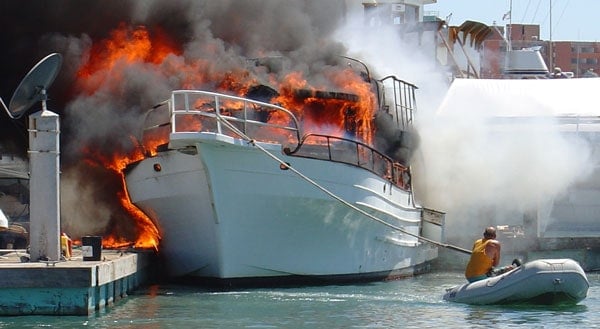
One final resource–it’s old but still helpful. Chapman’s Nautical Guides: Emergencies At Sea (Amazon) has a list of how to react in case of fires.
Please add your thoughts on what to do in case of a fire on board in the comments.
Related Posts

Quickly find anchorages, services, bridges, and more with our topic-focused, easy-to-use waterproof guides. Covering the ICW, Bahamas, Florida, and Chesapeake.
Explore All Guides

Carolyn Shearlock has lived aboard full-time for 17 years, splitting her time between a Tayana 37 monohull and a Gemini 105 catamaran. She’s cruised over 14,000 miles, from Pacific Mexico and Central America to Florida and the Bahamas, gaining firsthand experience with the joys and challenges of life on the water.
Through The Boat Galley, Carolyn has helped thousands of people explore, prepare for, and enjoy life afloat. She shares her expertise as an instructor at Cruisers University, in leading boating publications, and through her bestselling book, The Boat Galley Cookbook. She is passionate about helping others embark on their liveaboard journey—making life on the water simpler, safer, and more enjoyable.



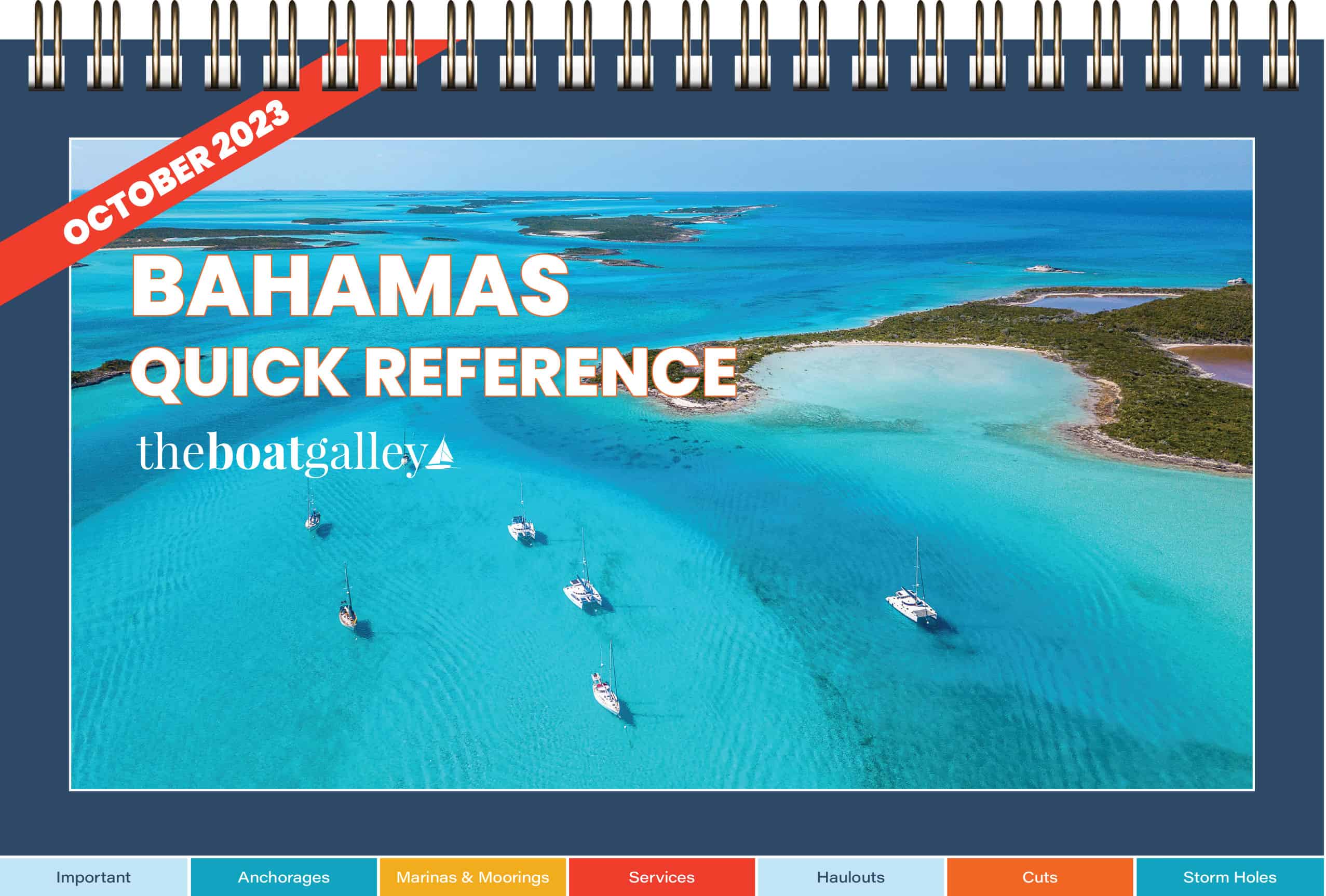
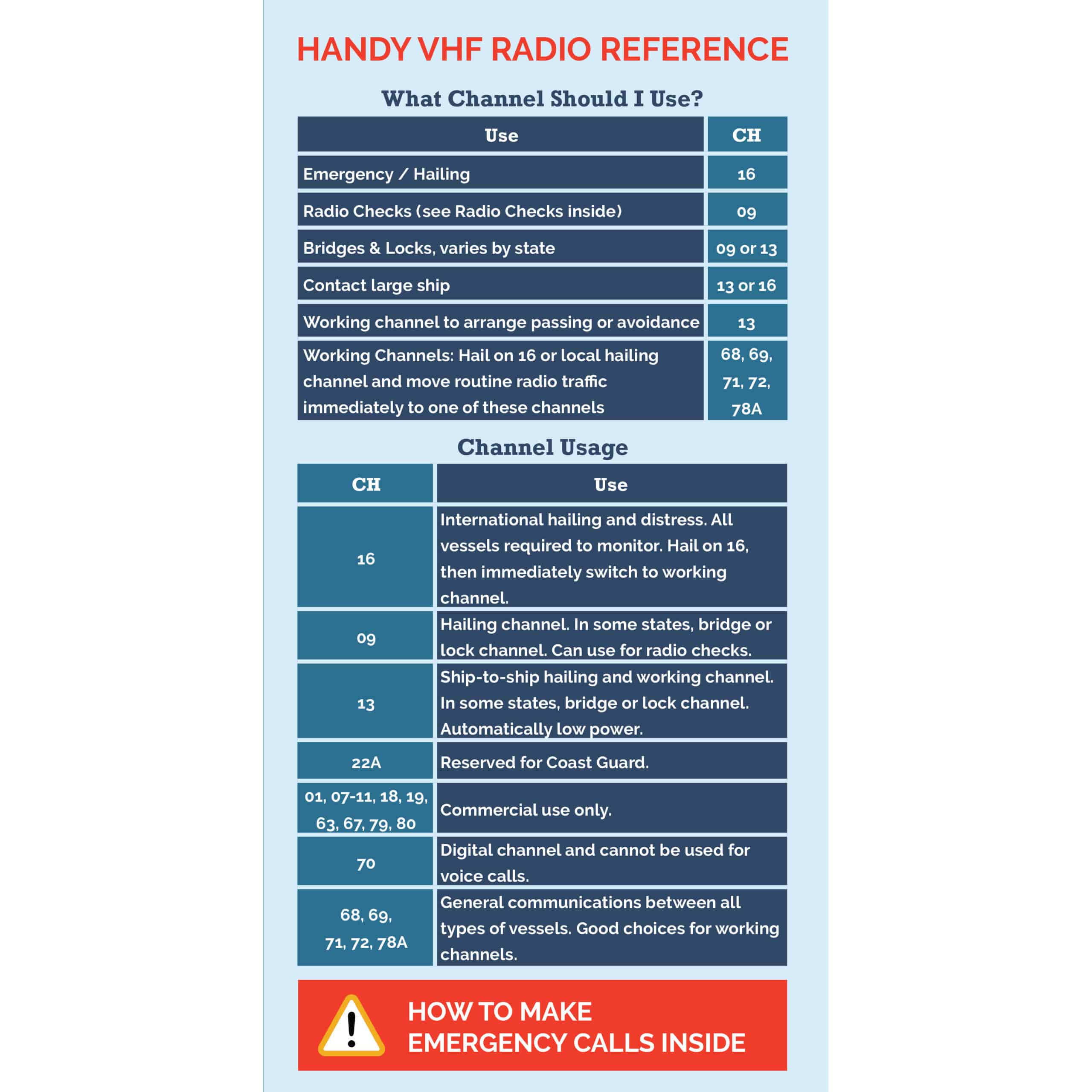



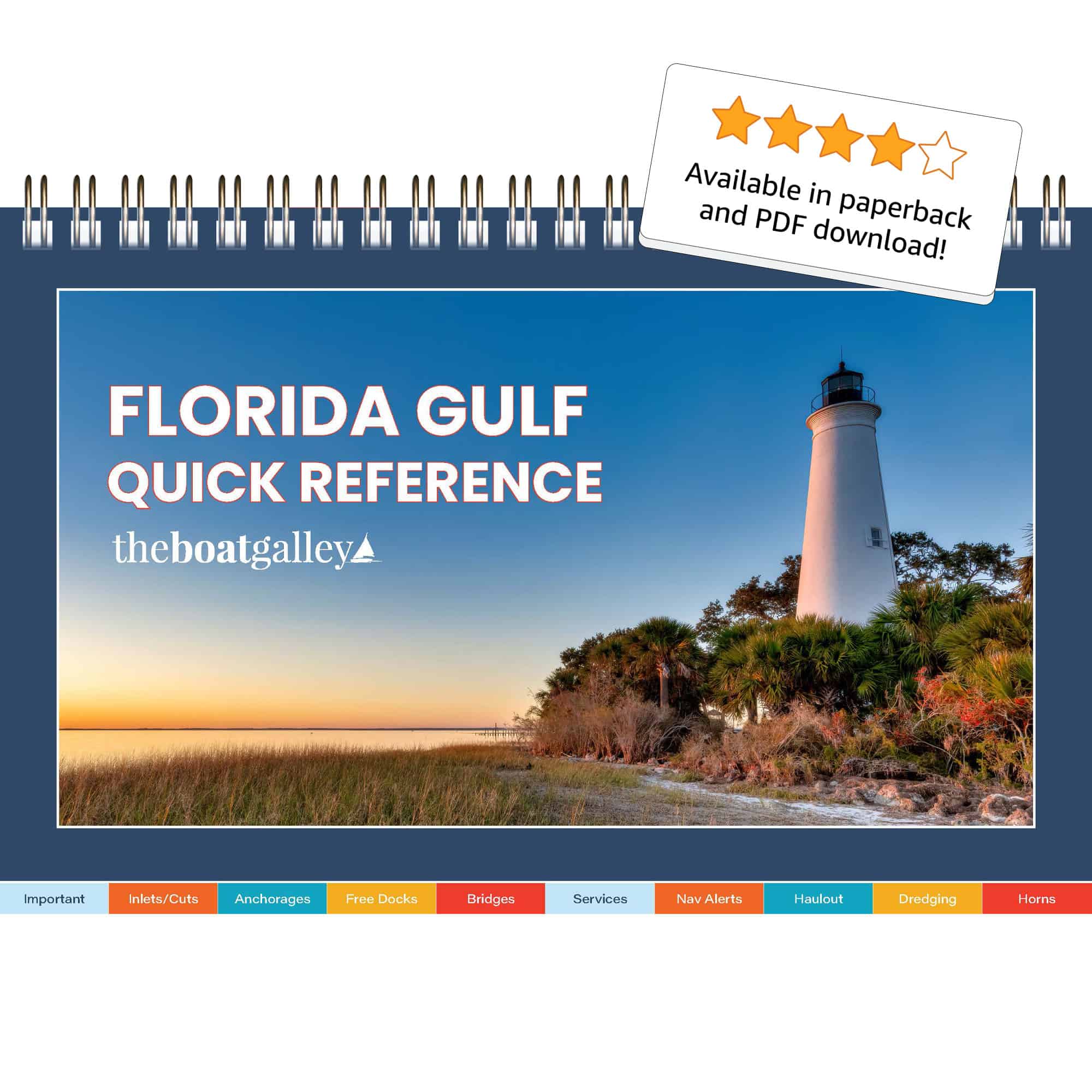
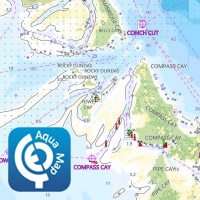
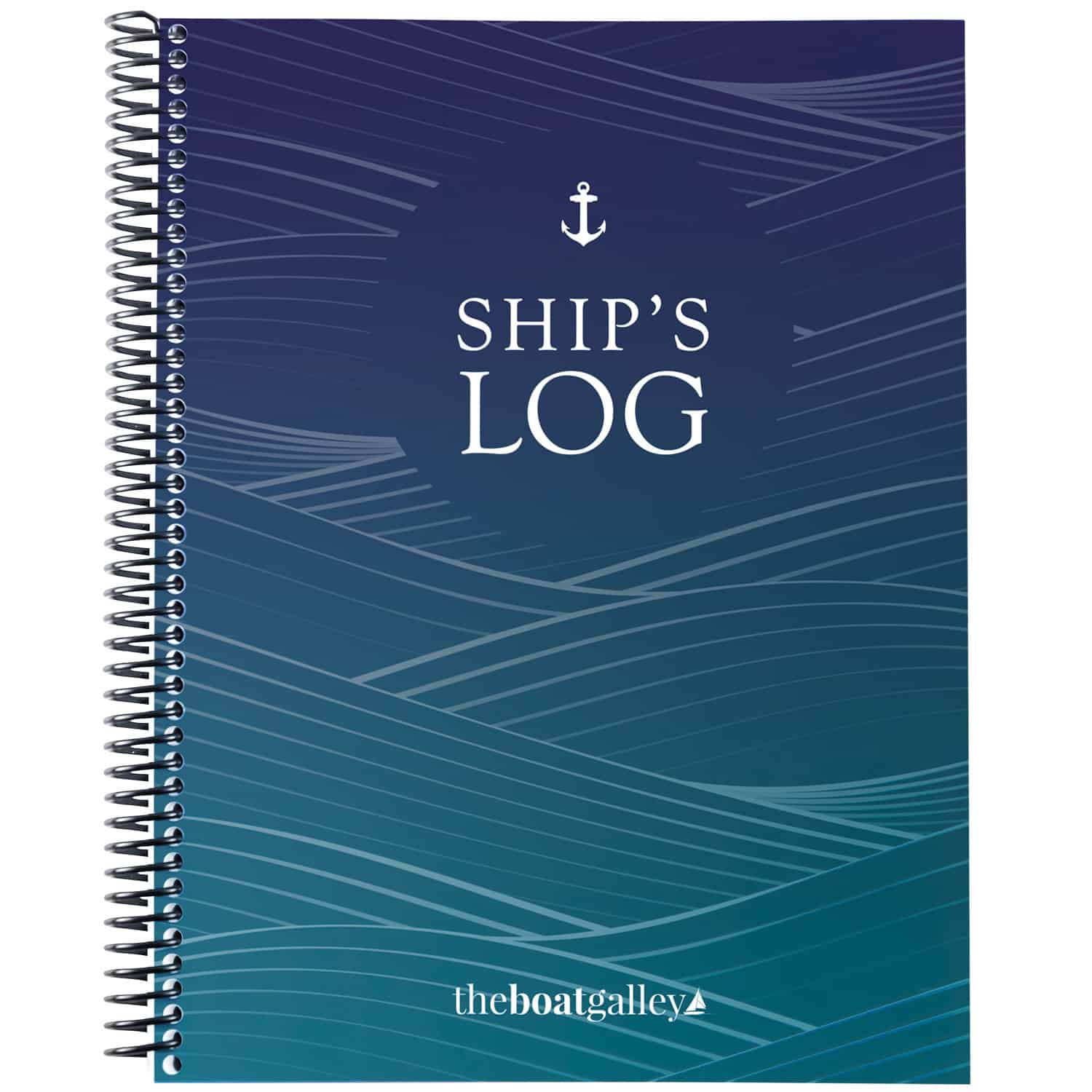
Carolyn Shearlock says
Great alarm idea!
I do have articles on both using a fire blanket and using a fire extinguisher for galley fires — and yes, in most situations, the fire blanket will do more.
The Boat Galley says
Talk about irony . . . just glad that you were safe, even if the cleanup was awful.
Carolyn Shearlock says
Oh no! I am SO sorry for you.
John Barltrop says
Elizabeth!…………….that is why the make those things called fire blankets, but do not get the 1m x 1m blanket, they are next to useless, get the 2.1m x 1.8m……….not only are they particularly good for the galley, but they are good to use for a “human torch” as well.
I might also add they may help someone escape from a fire zone.
The Boat Galley says
I’ve written about them several times and there are links in that post to those other articles for anyone who wants more info . . . or see them here: http://amzn.to/1NUtZ1u
Angel Mercer Ganey says
I bought this blanket, not knowing it was recommended. Glad to see it vetted here.
The Boat Galley says
I’m a big fan of checklists!
Shawn Harlan says
Yup… same one i have, stowed right under the oven.
John Barltrop says
“….right under the oven….”
NOT a good idea……..have it hung on a bulkhead near the door to the galley or space where the oven is located………if a fire started in this space the chances are it would be in the vicinity of the oven/range………you may not be able to reach the fire blanket!!!!
The Boat Galley says
I actually have two fire blankets — one on each side of the stove just so I can’t be caught on the wrong side. And multiple fire extinguishers.
John Barltrop says
In a galley the best extinguisher is the Wet Chemical Extinguisher which was specifically designed for fat and cooking oil fires…………it can also be used for carbonaceous materials, (wood, paper, plastics, etc.), although, I would not recommend it for that use because it is not recommend to use it on the latter……its very messy to clean up, that said, it is still the best extinguisher for galley fires involving cooking fats and oils.
lee says
Chapman’s Nautical Guides Emergencies At Sea has a list of how to react in case of fires.
Carolyn Shearlock says
It’s an older book — 1991 — but available on Amazon: http://amzn.to/1NWlr0U
John Barltrop says
“(diesel burns ferociously but does not ‘explode’)”
Any vapour air mixture within its flammability range will explode with an source of ignition, which includes distillates, kerosene, etc
Garry Ball says
Hi John. Yes – you are correct, as demonstrated by diesel burning in an internal combustion engine, but the conditions needed for a Diesel based ‘explosion’ to happen on a boat are in my opinion extreme.
For an ‘explosion’ the rate of burn needs to be very high or the pressure the burn generates to be contained and the container to fail dramatically. A liquid diesel fire, dramatic as that would be, is not normally ‘explosive’. A diesel fume fire could be ‘explosive’ but this depends on the volume of fumes and having the correct (or incorrect), air mixture with the diesel fumes.
The LFL (Lowest Flammable Limit) of diesel fumes fixed with normal air at 21% Oxygen is 0.6% of Diesel. Below 0.6% diesel fumes cannot be ignited.
The UFL (Upper Flammable Limit) of diesel fumes is 7.5% – above this diesel will not ignite. Of course on the boundary of the fumes the % will be in the inflammable range which, when ignited, gives the ‘broiling’ effect of the fire much loved in special effects.
Flash Point (Lowest Temp liquid diesel can be ignited by an ignition source) 38deg C – eg. spark from a diesel soaked electrical switch.
The Auto Ignition temp (spontaneous ignition with no ignition source) – 210deg C. – This is why rags should never be be left if soaked in diesel – decomposition can raise the temp but 210deg is extreme.
Being practical – if the correct concentration of diesel fumes is exposed to a spark or a temp above 210degC then the result is a Flash Fire and depending on the volume of diesel fumes and if they are contained within say a sealed engine room, you are correct, it could be termed an explosion.
There is a world of difference between Diesel and say Gasoline or LPG where the range and volatility is much greater. Personally I regard Diesel as not ‘Explosive’ – but in the wrong circumstances it can ‘Flash’. After that it is a liquid fire – albeit pretty damn fast!
The most important thing is to understand the processes of how diesel burns and so to understand how to tame the beast.
Fuel / Heat / Oxygen. Take one away = No Fire.
I must say though these are my own opinions and I won’t argue the difference between a Flash and an Explosion. I would also defer to anyone with more experience but just hope that to discuss these things helps understanding of the risks we are all exposed to, especially on a boat or in a car.
Carolyn Shearlock says
In general, you do NOT want to splash water on an electrical fire — use a fire extinguisher instead.
Robin says
We had a fire onboard while cruising a couple miles from home. We both heard the Fire Boy system pop in the engine room. I went forward & dropped the anchor right away so we could be found. I went down to feel the engine room hatch which was hotter than usual. Husband shut off the remaining engine. We already had life vests on. Called ‘may day.’ Fire Dept, DNR & Police boats arrived. Fire was already extinguished by the system. Funny thing: we had heard of a boat fire 2 days earlier so we had talked about finding our position coordinates. We were Sea Tow members & were towed back to our slip. Whew! But we felt good about how we acted in the emergency.